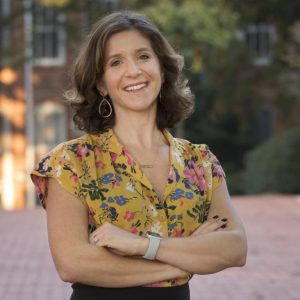Clemson, UofSC to use $4.6 million award to help school districts across S.C. support students with emotional, behavioral needs
September 27, 2022The South Carolina Department of Education Office of Special Education Services (OSES) in the Division of College and Career Readiness partnered with researchers at Clemson University and the University of South Carolina last month to develop the Behavior Alliance of South Carolina (BASC).
The BASC, which is led by Clemson University and University of South Carolina faculty, will use a $4.6 million award from the OSES to work directly with the state to help districts and schools across South Carolina build capacity for supporting students with social, emotional and behavioral needs.
In the initial year of a planned five-year funding cycle, the BASC will set up its own internal structure and guide districts in collecting and analyzing initial data to define school needs. It will then provide statewide access to professional development and assist districts in the implementation of multi-tiered systems of support, which is a collaborative, evidence-based approach that provides proactive support to all students. These multi-tiered systems of support will focus on social, emotional and behavioral support for students.
According to Shanna Hirsch (see featured image), associate professor in the Clemson University College of Education and project director for the BASC, the multi-tiered system of supports framework will help grow district infrastructure to allow schools to make data-based decisions to support implementation of student-level interventions. Hirsch said that the final phase of the project will see districts establish their own communities of practice so that the support systems put in place are sustainable and lasting.
“We plan for the BASC to bring people together from Clemson, UofSC and OSES to collaborate, share resources and support districts across the state,” Hirsch said. “Our plan is to work with districts to help them create positive learning environments while improving the social, emotional and behavioral outcomes for students. To do this, the BASC will facilitate building the capacity of South Carolina schools to implement multi-tiered system of supports.”
Hirsch said that in the initial data collection phase, the team will be particularly interested in analyzing existing schoolwide data to see trends and identify potential areas to strengthen. A primary goal is to help school communities flourish by ensuring equitable outcomes.
Dr. Mark Samudre, assistant professor of special education at the University of South Carolina, will also serve as a project director for the BASC. He said the benefits to all teachers – not just special education teachers – are a main feature of the systems of support that will be put in place.
Samudre previously worked as a special education teacher, and his research focuses on equipping general education teachers with the same tools to implement intensive behavioral supports that special education teachers employ on a day-to-day basis.














